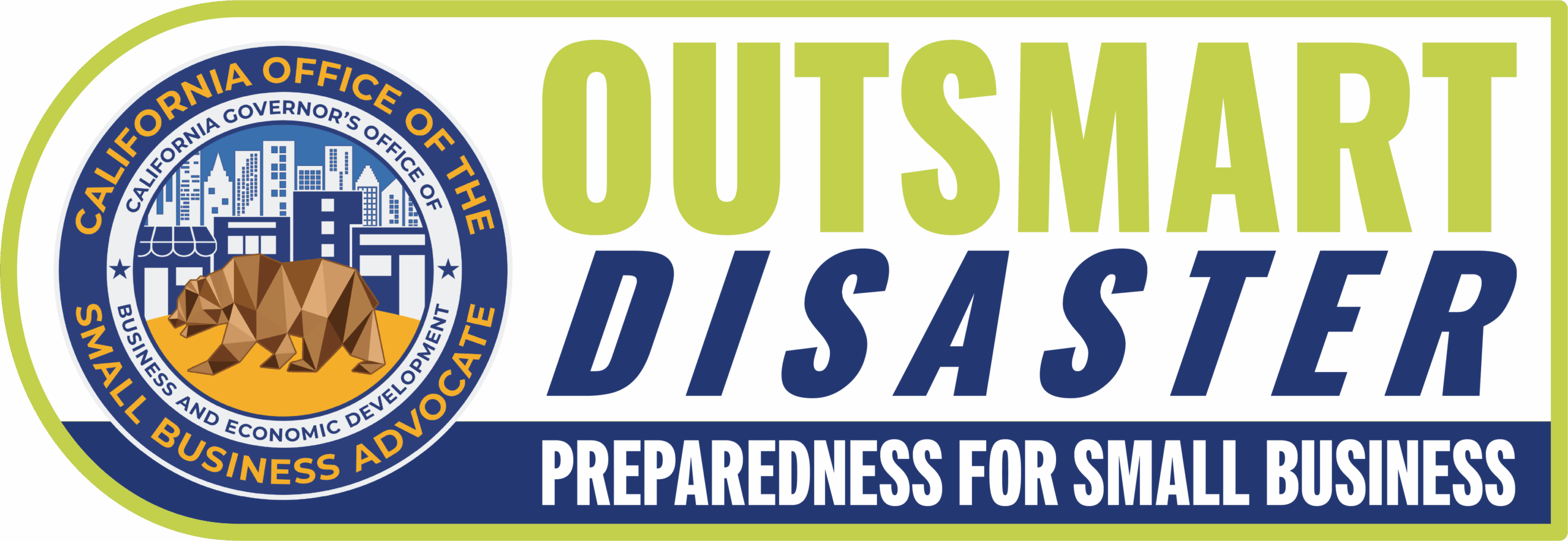Guide to Permits, Licensing, and Regulations
Use these tools and resources to set up a California small business that is ready to legally operate.

Permitting Agencies

Environmental Permits

Permit Assistance

Professional Licenses
 Regulations
RegulationsPermitting Agencies
California Secretary of State (BizFile)
Supports businesses by registering and authenticating business entities and trademarks. A business filing is necessary for these types of entities: corporations, limited liability companies, limited partnerships and non-profits. Sole proprietors do not need to file. You can file by mail or in person.
Franchise Tax Board (FTB)
All California businesses must file state income tax with the Franchise Tax Board (FTB). Doing business in California is defined as engaging in any transaction for financial gain; being organized or domiciled in the state; or exceeding certain amounts in sales, property or payroll.
Employment Development Department (EDD)
Collects payroll taxes; administers the Unemployment Insurance and State Disability Insurance programs; and maintains employment records for all California workers. If you employ one or more persons and pay wages in excess of $100 in a calendar quarter, you must register as an employer with the EDD.
Department of Industrial Relations (DIR)
Issues permits, licenses, certifications, and registrations. Two license issuing offices within the DIR issue permits for most types of work. Find the complete listing and references on their website.
Environmental Permits
 Division of Industrial Relations (DIR)
Division of Industrial Relations (DIR)Enforces California labor laws, sets and enforces standards for safety and health in the workplace, and monitors the administration of workers’ compensation claims, and provides administrative and judicial services to assist in resolving disputes. Provides outreach and educational materials to both workers and employers about California labor regulations and operating safe workplaces.
 California Department of Tax and Fee Administration (CDTFA)
California Department of Tax and Fee Administration (CDTFA)
Administers California’s sales and use, fuel, tobacco, alcohol, and cannabis taxes. Tax programs administered by CDTFA fall into two general areas: sales and use tax, and special taxes and fees. Seller’s permits are required for businesses engaged in California that intend to sell or lease tangible personal property that would be subject to sales tax if sold at retail; you may also need a Resale Certificate. Distributors, and microbusinesses licensed to act as a distributor, of cannabis and cannabis products must obtain a cannabis tax permit.
Environmental Permits
Permit Assistance

The CalGOLD online permit assistance tool helps you to identify local, state, and federal permit information for your business, including resources, application forms, and contact information for the relevant agencies. For permits and registrations administered by the State of California, CalGOLD also includes a Forms and Fee Finder with direct links to applications and fee information. Simply enter your city and type of business. If your business type is not listed, select General Business Information.
Professional Licensure Guide
Aerial Tramways and Amusement Rides
Animal Services
- Veterinary Services
- Veterinarian
- Veterinary Assistant
- Veterinary Technician
- Vet Food-Animal Drug Retailer
Athletics
Automotive Services
- Automotive Repair Services
- Automotive Repair Dealers
- Brake and Lamp Adjusters
- Brake and Lamp Inspection Stations
- Smog Check Stations
- Smog Check Technicians
- Car Washing and Polishing
Barbering and Cosmetology
Building, Construction, Contracting, Engineering, and Mechanical
Architects, Engineers, and Land Surveyors
Asbestos and Structural Pest Control
Construction and Contracting
Electrical
Machines and Equipment
Mining, Tunneling and Blasting
Cemetery and Funeral Bureau
Door-to-Door Sales
Education
Finance and Accounting
Financial Institutions and Lenders
- Banks
- Broker-Dealers and Investment Advisers
- Business and Industrial Development Corporations
- California Deferred Deposit Originators (Payday Lenders)
- California Finance Lenders
- California Residential Mortgage Lenders
- Capital Access Companies
- Credit Unions
- Escrow Agents/ Escrow Law
- Foreign (Other Nation) Banks
- Foreign (Other State) Banks
- Franchises
- Industrial Banks
- Local Agency Security Program
- Money Transmitters
- Mortgage Loan Originators
- Premium Finance Companies
- Responsible Small Dollar Loans
- Securities
- Trust Companies and Departments
Garment Manufacturing
Health Care and Related Services
- Acupuncture
- Behavioral Sciences
- Chiropractic Examiners
- Dental
- Dental Hygiene
- Medical
- Medical Cannabis
- Naturopathic Medicine
- Occupational Therapy
- Optometry
- Osteopathic Physicians and Surgeons
- Pharmacy
- Physical Therapy
- Physician Assistant
- Podiatric Medicine
- Psychology
- Registered Nursing
- Respiratory Care Practitioners
- Speech-Language Pathology Audiology and Hearing Aid Dispensers
- Vocational Nurse and Psychiatric Technicians
- Medical Provider Network (MPN)
- Qualified Medical Evaluator (QME)
Horse Racing
- Horse Racing
- Authorized Agent
- Stable Name
- Horse Trainer
- Horse Owner
Industrial Homeworkers
Legal Services
California Regulations Guide
The Administrative Procedures Act
The Administrative Procedure Act (APA) establishes rulemaking procedures and standards for state agencies in California. The requirements set forth in the APA are designed to provide the public with a meaningful opportunity to participate in the adoption of state regulations and to ensure that regulations are clear, applicable and legally valid. The APA is found in the California Government Code, section 11340 et seq. State regulations must also be adopted in compliance with regulations adopted by OAL (see California Code of Regulations, Title 1, sections 1-280). For information consult the California Office of Administrative Law’s Administrative and Procedure Act and OAL Regulations.
For information on how to participate in the rule making process, consult the California Office of Administrative Law’s Regular Rulemaking Process page.
The California Code of Regulations
The California Code of Regulations (CCR), is the official compilation and publication of the regulations adopted, amended or repealed by state agencies pursuant to the Administrative Procedure Act (APA). Properly adopted regulations that have been filed with the Secretary of State have the force of law.
The CCR is compiled into Titles* and organized into Divisions containing the regulations of state agencies.
CCR is available from a variety of Sources:
- The Office of Administrative Law (OAL) contracts with Thomson-Reuters to provide a free online version of the Official CCR. It is also available on the OAL website: California Code of Regulations. If you have difficulties accessing the CCR website, e-mail OAL or contact Barclays at 1-800-888-3600.
- Most County Clerks and County Law Libraries have printed copies of the CCR.
- To order a hard-copy version of the CCR or purchase individual Titles, contact Barclays, publisher of the Official CCR, or call 1-800-888-3600.
Current Regulations
An online version of the CCR is available online through the Office of Administrative Law (OAL) in partnership with Thomas-Reuters Westlaw. This version is updated weekly.Review the regulations here.
Past Regulation Versions
If you need to research a previous version of the California Code of Regulations, the Office of Administrative Law files hardcopies this collection at the California State Law Library.
More information on accessing these prior versions can be found by visiting theCalifornia Code of Regulations History Research.
Pending Regulations
The Office of Administrative Law also publishes information on proposed regulatory actions by state regulatory agencies to adopt, amend, or repeal regulations contained in the California Code of Regulations.
To view the records of proposed regulatory actions, visit theCalifornia Regulatory Notice Register.
Unclaimed Property
Did you know California is safeguarding billions of dollars in unclaimed property? Uncashed paychecks, inactive bank accounts, and customer refunds are just some of the common forms of unclaimed property that are sent to the state every year by businesses. Search the unclaimed property database at Claimit.ca.gov to discover funds that may belong to you or your business.
Businesses send unclaimed property to the State Controller’s Office each year as required under California’s Unclaimed Property Law. If your business is holding unclaimed property that may be reportable, visit GoReport.sco.ca.gov to register for free training webinars, review reporting instructions, and submit reports through the online reporting portal. We are here to help!
Find Past Versions of a Regulation
Sometimes, there is a need to research a prior version of a section of the California Code of Regulations (CCR) or to track its history. Researching a prior version of a CCR section is done using the California Code of Regulations Supplement (previously known as the California Regulatory Code Supplement, but commonly referred to as the Registeror CCR Supplement). For additional information, visit the California Code of Regulations History Research.
The California Regulatory Notice Register (Proposed Regulations)
The California Regulatory Notice Register (Notice Register) contains notices of proposed regulatory actions by state regulatory agencies to adopt, amend, or repeal regulations contained in the California Code of Regulations. A state agency must complete its rulemaking and submit the rulemaking file to OAL within one year of the date of publication of a Notice of Proposed Action (Notice) in the Notice Register. (Government Code Section 11346.4(b)).
Major Regulations - Standardized Regulatory Impact Assessment (SRIA)
Senate Bill 617 (Chapter 496, Statutes of 2011) established additional regulatory impact assessment standards for major regulations. State agencies must conduct a Standardized Regulatory Impact Assessment (SRIA) when it estimates that a proposed regulation has an economic impact exceeding $50 million. The Department of Finance has adopted regulations for state agencies to follow when conducting a SRIA for major regulations. Finance is required to review the completed SRIA submitted by agencies and provide comment(s) to the agency on the extent to which the assessment adheres to the regulations adopted by Finance. Any questions regarding these regulations or completing a SRIA should be directed to the Economic Research Unit. You can contact this unit by phone at (916) 322-2263 or by email at MajorRegulations@dof.ca.gov.
The Permits Office of provides comments to Finance on all Major Regulation SRIA documents and analyses.
The Permits Office of GO-Biz reaches out to the impacted industry and seeks comments and concerns from the businesses being affected by the changes. GO-Biz welcomes comments from the business community on upcoming Major Regulation Impact Assessments. We encourage you to sign up for both our mailing list and the mailing list managed by the Department of Finance. You can also Contact Us to share your comments.
About the Regular and Emergency Rulemaking Processes
The Regular Rulemaking Process
Per the California Administrative Procedures Act (APA), many of the regulations that are submitted to the Office of Administrative Law are considered regular rulemakings. These rulemakings are subject to a specific process which includes comprehensive public notice and comment requirements along with requirements that documents and information on which the proposal is based is made available for review and inspection. This comprehensive process intends to create a detailed record that can be reviewed by the Office of Administrative Law and the California courts as well as encourage and facilitate public participation in the rulemaking process.
To learn more about the regular rulemaking process, visit theAbout the Regular Rulemaking Process.
The Emergency Rulemaking Process
Some proposals are submitted as an emergency rulemaking, which generally includes a brief public notice, a brief public comment period, review by the Office of Administrative Law, and a decision. These proposals are intended for situations where immediate action is required to avoid harm to public peace, health, safety, or general welfare.
For more information on the emergency rulemaking process, visit About the Emergency Rulemaking Process.
How to Participate in the Rulemaking Process
Participation in public comment opportunities are different between regular and emergency rulemaking processes. For regular rulemaking, there is a 45-day period for the public to make comments to the agency proposing the regulation. For emergency rulemaking, there is a 5-calendar day period for the public to make comments, which must be submitted to the Office of Administrative Law.
More information on participating in these processes can be found in the pages linked above.
California Office of the Small Business Advocate
1325 J Street, Suite 1800
Sacramento, CA 95814
Contact CalOSBA
Speaker Request Form
Stay informed. Subscribe:
CalOSBA Small Business News
State Funding Programs
CA Grants Portal





















































